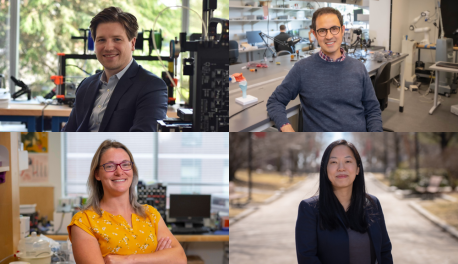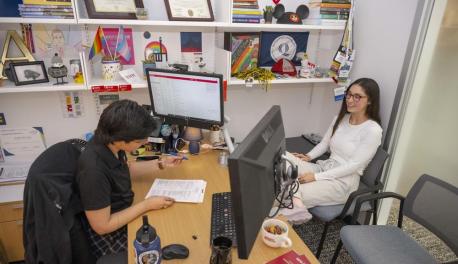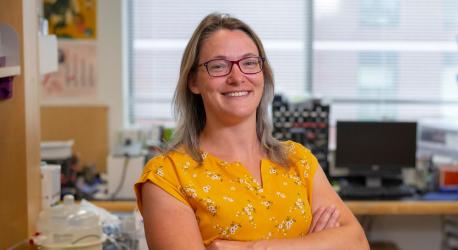

The overall objectives of my research are to develop clinically translatable tissue regeneration and drug delivery strategies, and three-dimensional, in vitro human disease models using biologically-derived biomaterials. We will utilize techniques from engineering, chemistry and biology to address these research areas, including chemical modifications to alter drug-material interactions, small molecule and macromolecule conjugates to direct cell fate, and multi-cellular tissue/disease systems for paracrine signaling and direct cell-cell interactions. My research is focused on biomaterials and their applications in tissue engineering and drug delivery. During my PhD, I worked with photo-crosslinked PEGDA hydrogel systems to study repair strategies for articular cartilage diseases. I also developed low density, bioactive-electrospun fiber scaffolds for repair of articular cartilage defects. My postdoctoral research used silk fibroin proteins from Bombyx mori silkworm cocoons for (1) drug delivery systems for oncology therapeutics and HIV treatment/prevention and (2) tissue regeneration of the kidney and pancreas. In the lab and the classroom, I truly enjoy teaching. I am especially excited to mentor students on their Major Qualifying Projects. I strive to ensure that students are able to (1) apply theoretical concepts to practical applications and (2) fully understand the tasks being performed.
Scholarly Work
Abbott A, Coburn JM. (2021) HepaRG maturation on silk fibroin scaffolds toward development of a 3D in vitro liver model, Accepted ACS Biomaterials Science and Engineering. DOI: 10.1021/acsbiomaterials.0c01584 2021
Abbott AA, Oxburgh L, Kaplan DL, Coburn JM. (2018) Avidin adsorption to silk fibroin films as a facile method for functionalization. Biomacromolecules. 19(9):3705-3713. 2018
Bond KH, Chiba T, Wynne KPH, Vary CPH, Sims-Lucas S, Coburn JM, Oxburgh L. (2021) The extracellular matrix environment of clear cell renal cell carcinoma determines cancer associated fibroblast growth. Cancers, 13, 5873. 2021
Taylor JS, Zeki J, Ornell K, Coburn J, Shimada H, Ikegaki N, Chiu B. (2019) Down-regulation of MYCN protein by CX-5461 leads to neuroblastoma tumor growth suppression. Journal of Pediatric Surgery. 2019
Taylor JS, Sha L, Ikegaki N, Zeki J, Deaton R, Harris J, Coburn J, Sethi A, Shimada H, Kaplan DL, Gann P, Chiu B. (2019) Replicating and identifying large cell neuroblastoma using high-dose intra-tumroal chemotherapy and automated digital analysis. Journal of Pediatric Surgery. 2019
Sundarakrishnan A, Zukas H, Coburn J, Bertini B, Liu Z, Georgakoudi I, Baugh L, Dasgupta Q, Black L, Kaplan D. (2019) Bioengineered in vitro tissue model of fibroblastic focus (FF) for modeling pulmonary fibrosis. ACS Biomaterials Science & Engineering. 2019
Patents



